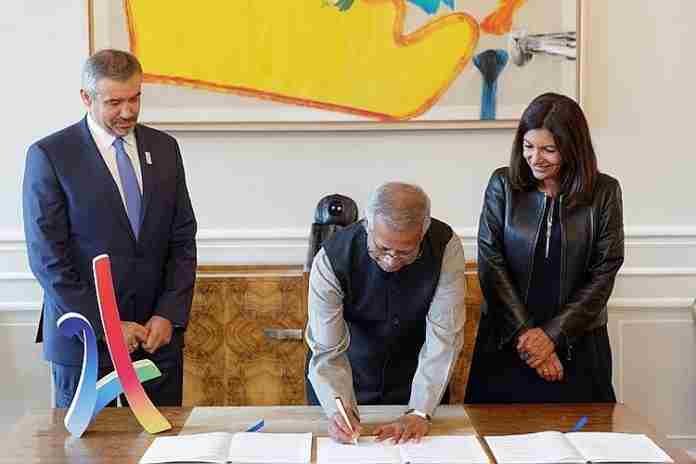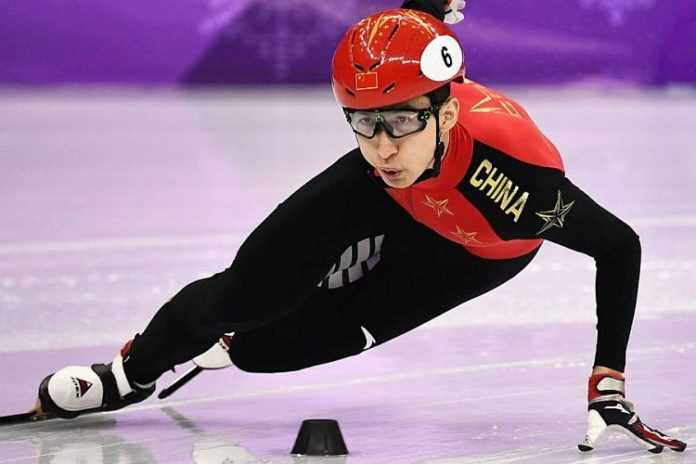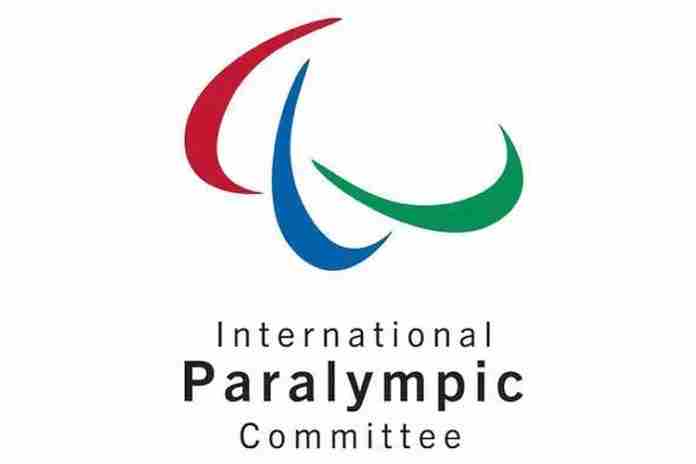 There was a time when modesty and humility were prized, and the idea that if you made reasonable promises and over-delivered on those promises, the results would be widely viewed as positive.
There was a time when modesty and humility were prized, and the idea that if you made reasonable promises and over-delivered on those promises, the results would be widely viewed as positive.
Those concepts appear today to be as ancient as Egypt’s pyramids. Society in many countries appears divided along many lines and the social turmoil in France has reached out and touched the 2024 Olympic Games to be held in Paris.
French President Emmanuel Macron, elected in 2017, told an audience in the southern Paris community of Evry-Courcouronnes on Monday that, concerning the 2024 effort, “At the moment, we are not meeting the goals we should have for the parts of the Paris region that are most affected by this big event.”
He added that “It is clear that the region, and above all Seine-Saint-Denis because it will be most affected by several big new venues, is not getting a fair return. So we are going to work on it because for now, I’m not happy.”
He was referring to the northern Paris community of Seine-Saint Denis, in which much of the construction work is slated for the Games, including the Olympic Village and media housing, which will be used for housing after the Games.
It’s a remarkable set of comments, because the issues involved are controlled by the government he leads. Some of the leaders of the Seine-Saint-Denis area responded to this right away, as noted in a report from Agence France Presse:
“‘I think it’s a bit much for the president to come out with this. At the moment, it’s the state that is not taking care of things,’ said Clement Remond, the vice president of FSGT, which organises sports activities for people from all walks of life and who was attending an event to promote the Olympics through schools.
“Under Macron’s drive to reduce public spending, the government has cut grants for sports facilities in local areas and slashed the number of state-subsidised jobs, many linked to sports clubs.”
Macron is in the difficult position of responding to what has turned into the national “yellow vest” movement started last November to protest his government’s policies. The protests are apparently from those who did not vote for Macron in the first round of the 2017 Presidential elections, where he was the leading vote-getter at 24% of the total. Macron won the Presidency in a run-off vs. Marine Le Pen, where he was elected by 66-34%.
The Paris 2024 chief executive, former Olympic canoeing medalist Tony Estanguet, told AFP, “We will obviously be able to go further in helping people with a state that is highly motivated at our side.”
This is a real danger for the Paris 2024 organizers, because an Olympic organizing committee is not designed to be a social-service agency. Its job is to plan and stage an event of worldwide interest, whose size and complexity makes it incredibly difficult to organize efficiently, in both cost and time.
But this is old news to those who have watched the Olympic Movement over the decades. It is only those who do not know what happened before who are surprised.
In the run-up to the 1984 Games in Los Angeles, the organizing committee kept as low a profile as possible. The Olympic Games was not especially popular in the U.S., following Montreal’s billion-dollar deficit following the 1976 Games and the American boycott of the Moscow Games in 1980.
Organizing Committee chief Peter Ueberroth focused the public’s attention on the athletes. In speech after speech to groups of all sizes and interests, he emphasized the ambitions and sacrifices of athletes who would be coming to the Games from around the world and how important it was for Los Angeles and the United States to be good hosts. As for the organizing effort, he said – again and again – that the committee’s work was to be the “stage hands” who worked behind the scenes to make the event happen, and without government funding. And he asked for help, as volunteers, ticket buyers or just fans who watched at home.
His approach worked well and the Games were lauded for sensational performances such as Carl Lewis’s four gold medals, gymnastics star Mary Lou Retton and so on. That the LAOOC approach yielded a $232.5 million surplus and reshaped sports marketing and sports management into the future was a welcomed, added bonus.
But 12 years later, the head of the organizing committee in Atlanta, Billy Payne, proclaimed the 1996 Games would be the “greatest peace-time event in the 20th Century.” That Games was not, and while the competitions were historic, so were very public aspects of the Games that did not go as well as planned … and were widely noted.
So there were those who have experienced both of these events whose hearts sank when reading of a triumphant announcement in May 2018 of an agreement between the Paris 2024 organizing committee, Paris Mayor Anne Hidalgo, the Yunnus Centre and the SAMU humanitarian social-services agency which assists the homeless. The headline was “Paris 2024 to sign partnership aiming to achieve zero poverty, unemployment and carbon emissions.”
Signed, of course, in Seine-Saint-Denis, the program is designed “to promote the integration of people facing difficulties, while creating jobs in large numbers for vulnerable members of the public. Efforts will also be made to promote social initiatives.”
Eliminate poverty, unemployment and carbon emissions? Paris 2024 has no chance to achieve this. It can help. It can employ some people, it can engage some people in the operations of the Games, but an organizing committee for 30 days of Olympic Games and Paralympic Games is not the government and can not be the linchpin of a wholesale change in France as a whole, or even Paris in particular.
This is an object lesson for future bidders and organizers of Olympic Games and other major events. They can be catalysts, they can introduce new energies into a city or region, but the Games are not a panacea for the economic and social problems of millions of people.
The Beijing 2022 Winter Games organizers have a specific and possibly achievable goal of using the Games to introduce winter sports participation to more of the Chinese public. The Los Angeles 2028 organizers have been busy with increasing participation in City youth programs, especially in swimming, and have otherwise said very little for now.
Maybe they learned something from Mr. Ueberroth. I learned a lot in my four years with the LAOOC. Others would benefit by learning from him too.
Rich Perelman
Editor


























